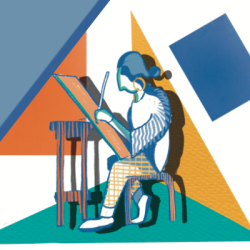Exploring Artistic Horizons: TPH's Inaugural Digital Art Session
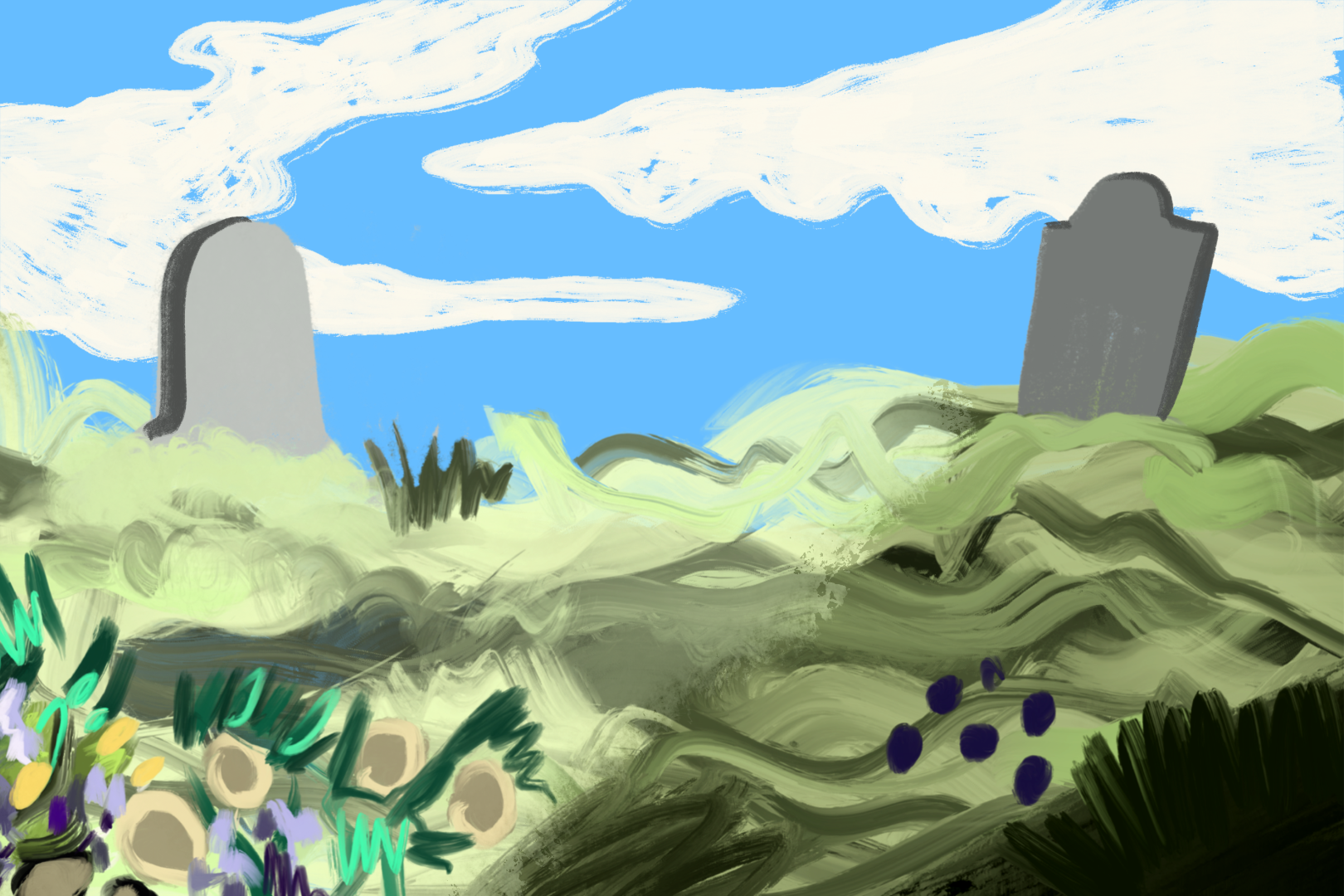
Was There Really Jewish-Muslim Harmony in Shindukha? And What About the Forgotten Graves?"
By: Harzhin & Farhad
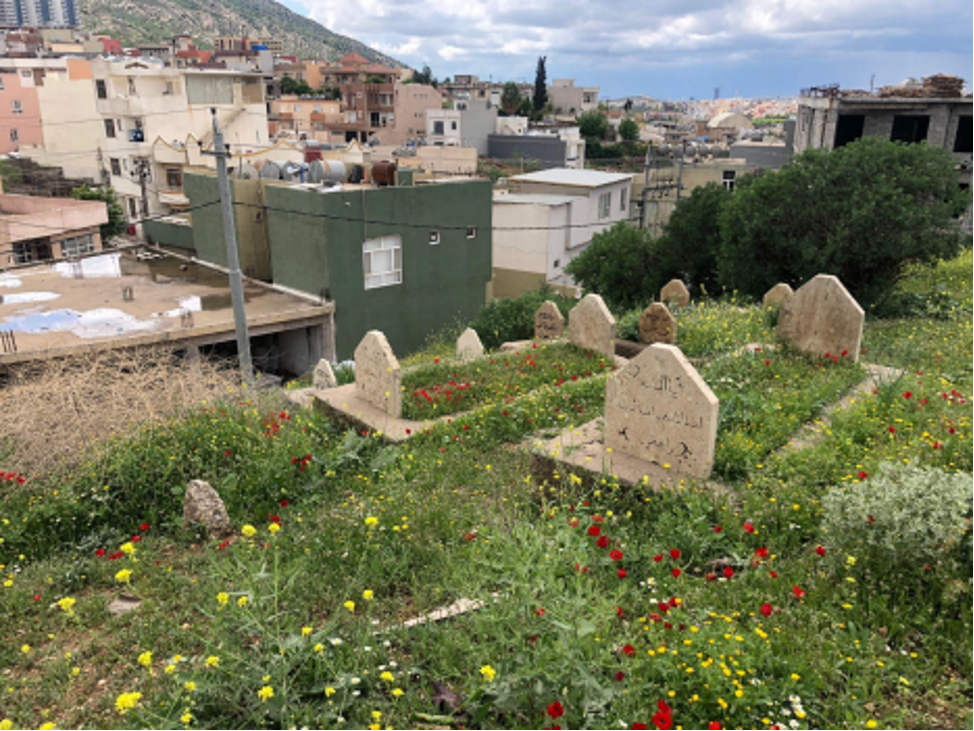
A solemn reminder of the past. A greenhouse built unknowingly over the graves of a Jewish community.
During the 1990s an Israeli man, who used to call Shindukha his home, came back to visit his father's grave. However, the village he remembered so well had changed sensationally, and he found it difficult to recognize the streets he once roamed.
When he arrived at the cemetery, he was devastated to find that a cold, green concrete structure now stood where his father's grave had once been. The new villagers explained that there was no sign of a grave when they built it. The man was overcome with grief and sat under an old tree, crying out to the heavens in anguish.
This touching moment left people all reflecting on the pain and loss experienced by the man. It was a reminder that the passing of time and changes in a community can be difficult for those with deep connections to a place.
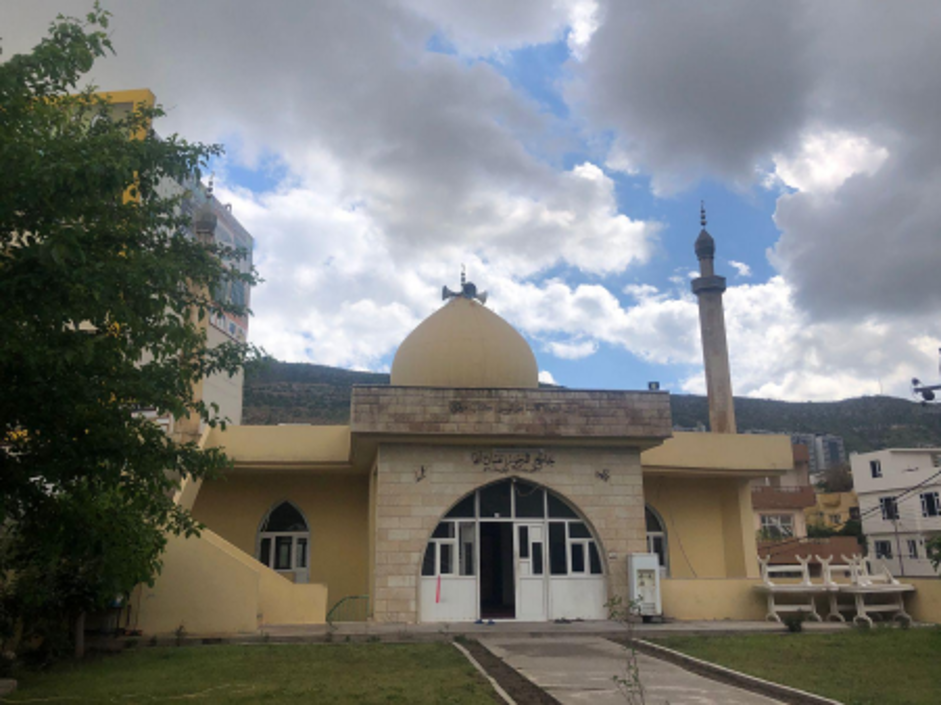
Shindukha's first mosque, named by Abban Agha, still stands today as the oldest in the village.
In the midst of the April rain, as people sought shelter from the rain in the old mosque of Shindukha, two elderly men waited for it to pass. One of them shared a heartfelt story about a time long ago when Jews and Muslims lived together in their community like one big family, without any conflict or animosity. You could hear the nostalgia and longing in his voice as he spoke.
His words ignited a spark of interest in the mosque, and one couldn't help but wonder about the dynamics between the two groups. What was it really like living with Jews in their community? What interactions and memories were shared between these different religious and cultural groups? In the olden times, survival was the top priority for the locals and peasants, and they didn't pay much attention to ethnicity or religion. All they cared about was working together to overcome their struggles and hardships. They were a diverse community united in their efforts to make a living and provide for their families. Stories like these evoke a sense of wonder and a longing to uncover more about the harmonious way of life they once experienced.
Haji Abdulrahman, one of the oldest Shindukhi, recounted how the first Muslim family that settled in Shindukha was Abban Agha’s family, who had a strong bond with the Jewish community. Even as more families from Shakhke -Another town within the city- arrived, the profitable relationship between the Jews and the locals continued. When the Jewish community eventually decided to immigrate to the Jewish state in the 1950s, they sold what they didn't need to the Muslims.
A Shindukhi, who experienced the 1991 uprisings in Iraq and witnessed the displacement of 1.5 million Kurds, shares an evocative story from that tumultuous period. He expressed his gratitude for the unwavering support of the Jewish community during their time of crisis. The Jews stood in solidarity with the Kurdish people, and this meant a great deal to him.
However, it's worth noting that some members of the Jewish community also expressed their criticism towards the United States for their role in the events that led to the uprisings and displacement of the Kurds. They believed that the U.S. had failed to intervene and prevent the atrocities committed by the Iraqi regime of Saddam Hussein.
Despite this, the Shindukhi will always remember the support shown by the Jewish community with deep appreciation in his heart. It's a reminder that in times of crisis, we need to come together and support one another, regardless of our differences. It's heartening to know that communities can stand in solidarity with one another, even in the face of adversity.
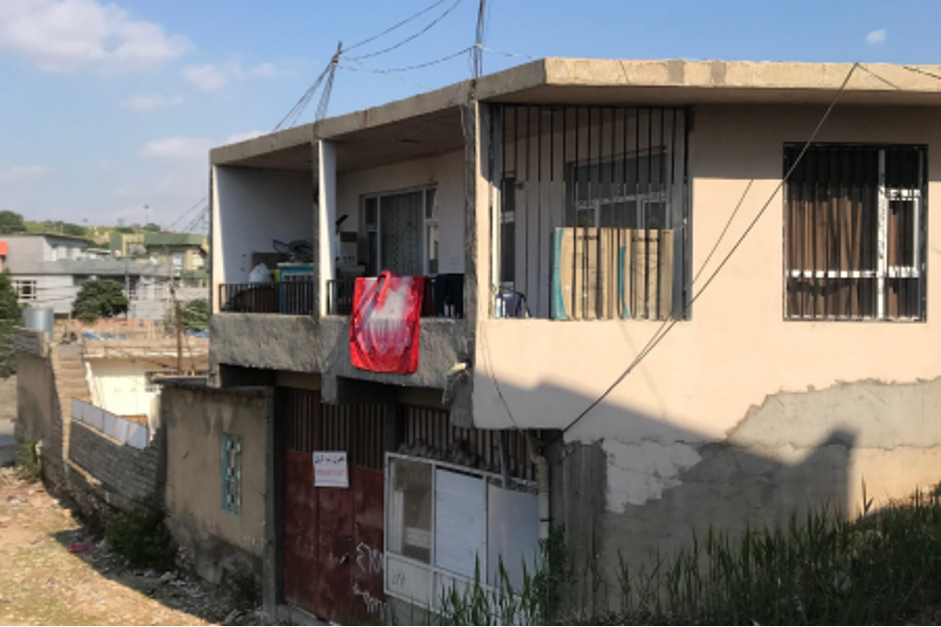
Jewish skeletal remains were found during the excavation under this house.
Walking through the streets of Shindukha, you can’t help but imagine the people who walked those same paths centuries ago. While admiring the architecture and soaking in its rich history, people find themselves pondering about all the people who once resided there and all the transformations that had taken place over time. It's a place with a rich history that begs to be explored. According to Dr. Rebar Maye, who serves as the head of the history department at Duhok University, Shindukha has served as a home to various communities throughout history.
One of the oldest is the Subari, though sadly, there are no written records of their time in the region. The Assyrians, on the other hand, have left behind a wealth of information. Ancient texts mention the village, which was known as "Shu Du Kho" in those times. Archaeological finds in the area include tools and artifacts that indicate the Assyrians considered it a heart of activity and significance.
Shindukha's past still holds significance today, reminding us to honor and preserve this remarkable community's legacy. The tools and artifacts left behind were a glimpse into the past, and one experiences reverence for this place and those who came before us.
Meanwhile, as you wander through the village, you'll come across many locals with fascinating stories to tell about the history of Shindukha and its people. Each person has their own unique perspective, and it's amazing to hear how they all interconnect. Their words were an indication of the power of community and the human spirit, as they held onto hope and unity despite challenges.
Haji Ines, one of the oldest Shindukhis, passed away at the impressive age of 100. What's remarkable is the bond he had with his Jewish friends, who continued to visit him multiple times even after they immigrated to the Jewish state. This speaks volumes about the strong relationship between the old Shindukhis and Jews.
It's heartwarming to see that friendships can transcend cultural and religious differences. Haji Ines' story reminds people of the importance of building connections and relationships with people from all walks of life. It's a testament to the power of human connection and the bonds we can create, even in the face of differences.
The village has undergone significant changes over time, yet it remains a place of deep significance for those who call it home. Shindukha is a microcosm of the complex history and culture of the Kurdistan region. With a past marked by coexistence and harmony between the Jewish and Muslim communities, the village stands as a reminder of the importance of building connections and understanding between people from different backgrounds.
